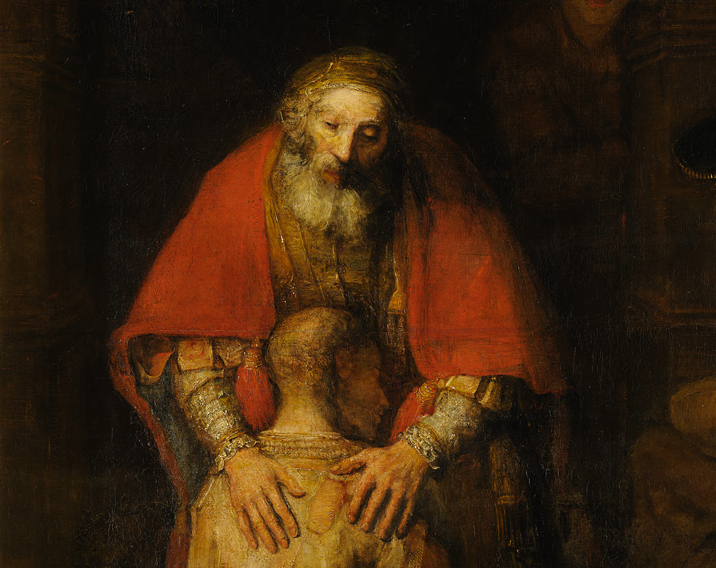—Gospel of Matthew, chapter 18:21–35
Forgiveness goes to the core of what it means to be a Christian. Its not easy to forgive someone who has offended you grievously. But forgive you must if you are to receive the Lord’s forgiveness for your own sins (Matthew 18:35).
There is a story of a man named George Wilson who was tried and condemned to death by hanging. The President of the United States, Andrew Jackson, granted him executive pardon. George Wilson, however, refused to accept the pardon. The Department of Corrections did not know what to do. The case was taken to the Supreme Court where Chief Justice Marshall ruled that “a pardon is a slip of paper, the value of which is determined by the acceptance of the person to be pardoned. If it is refused, it is no pardon. George Wilson must be hanged.” And hanged he was.
Even if we are opposed to the death penalty, we still cannot but agree with the principle that pardon granted has to be accepted to become effective. This is the point of the Parable of the Unforgiving Servant. When God pardons our sins, we have to accept His forgiveness. But if we are truly to accept His forgiveness we must forgive those who have sinned against us.
Forgiveness is a two-way street. It comes to us from God, and flows from us to one another.
This Parable raises the frightening prospect that forgiveness already granted by God can be revoked. The King (in the parable) who forgave his servant his debt meant it. But when the servant went out and failed to forgive his fellow servants, the King revoked the pardon. By his action of withholding forgiveness to others, the servant had shown he was unworthy of the forgiveness he had been given. This is why Jesus says: “So will my heavenly Father also do to every one of you, if you do not forgive your brother or sister from your heart” (Matthew 8:35).
God gives us His word of forgiveness, but that is not the whole story. The rest of the story is when we are able to forgive those who have sinned against us. This is the hard part. The grace of God’s forgiveness needs our response of forgiving the sins of our neighbors against us to be finally ratified. It is in forgiving that we are forgiven. This is what is emphasized in the Old Testament Book of Sirach 28:2, “Forgive your neighbors the wrong they have done, and then your sins will be pardoned when you pray.”
When we recite the Lord’s Prayer, we pray, “Forgive us our sins as we forgive those who have sinned against us” (Luke 11:4).
Why do we find it hard to forgive others even though it is the only way to receive God’s forgiveness? The reason, I propose, is because we fail to appreciate God’s forgiveness of our own sins. Like the ungrateful servant in the parable, we focus on our neighbor’s sins rather than our own which God has graciously forgiven.
If we are among those who find it so hard to forgive other people, chances are we do not appreciate sufficiently the bountiful forgiveness we ourselves have received from God.
So, let us pray for a deeper appreciation of forgiveness that will make it easier for us to let others off the hook for their sins against us.
—Fr. Hugh Duffy











8 Comments
Bjorn Schmid
Thank you Father for this message of admonishment and encouragement. Since I read Matthew 6:14-15 after the Lord’s prayer, we MUST have a forgiving heart, i.e. the heart of flesh and blood filled with his Holy Spirit (Ezekiel 36:26-27) if we are to truly follow Christ. Peace be with your spirit Father!
Hugh Duffy
Thanks, Bjorn. How can we create a better world if we’re not willing to forgive one another? Today’s social problems would disappear if people only could forgive rather than stoop to self righteous criticism of others.
Barton Van Housen
Thank you Father Duffy,
Another great reminder of living daily life 2020. Jesus is not “Part-Time” so I believe every day in his word’s of wisdom to live ones life by…when I go down, hopefully, Jesus will take me into his loving arms…as once my Mother and Father did….
Hugh Duffy
Well put, Barton. You got it.
Ed Mirasol
Well put, “we focus on our neighbor’s sins rather than our own which God has graciously forgiven.” For this reason we have difficulty forgiving others.
Hugh Duffy
Good.
Peter
I face some difficulty going to confession. I used to go since I was 16. Now, looking upon how tremendous are my sins, I get embarrassed to tell the priest what I have done. I think it is egoism which is barring me from doing this. What is your advice, father?
Hugh Duffy
Go to confession, Peter, and confess your sins. You’ll have no problem if you find a compassionate confessor. But, if you find it difficult to specifically mention a sin, ask for forgiveness for sins you have committed.